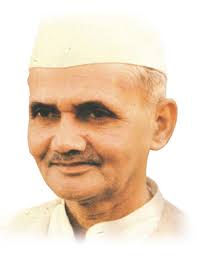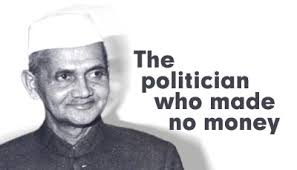Lal Bahadur Shastri: The Resolute Prime Minister Who Championed India’s Progress
Lal Bahadur Shastri, an exemplary leader and the second Prime Minister of independent India, made an indelible mark on the nation’s history. Despite his comparatively short tenure, Shastri’s dedication, integrity, and commitment to the welfare of the nation brought about significant advancements in various spheres. His humble beginnings, unwavering determination, and visionary policies deserve recognition and admiration.
Early Life and Political Journey
Born on October 2, 1904, in Uttar Pradesh, Lal Bahadur Shastri grew up in a family of modest means. He experienced the hardships of poverty firsthand and these experiences shaped his deep empathy for the marginalized sections of society. His academic pursuits were interrupted due to financial constraints, but that did not deter his quest for knowledge.
Shastriji actively participated in the freedom struggle alongside great leaders like Mahatma Gandhi, Jawaharlal Nehru, and others. He played a pivotal role in the Salt Satyagraha and subsequent campaigns against British colonial rule. His dedication and selflessness earned him the respect and admiration of his colleagues and common people alike.
Contributions as Prime Minister
Assuming office as the Prime Minister of India on June 9, 1964, Shastri faced numerous challenges, both at home and abroad. Despite these obstacles, he made significant contributions to the nation’s progress.
Economic Reforms and Self-sufficiency
Shastri’s leadership was marked by a focus on economic self-sufficiency. In the face of food shortages and a struggling economy, he introduced the famous slogan “Jai Jawan Jai Kisan” (Hail the Soldier, Hail the Farmer). This slogan aimed to bolster agricultural productivity and boost the morale of soldiers guarding India’s borders. Shastri implemented comprehensive agricultural reforms, including the successful Green Revolution, which saw a significant increase in food production and positioned India as a potential exporter, thus ensuring food security for the nation.
Resolution during the 1965 Indo-Pak War
Shastri’s mettle as a leader was tested during the Indo-Pak war in 1965. Despite the challenges faced by a newly independent nation, he took firm decisions to protect India’s sovereignty and territorial integrity. His resolve and determination led to a heroic defense against the aggression, and ultimately, a ceasefire was declared. Shastri’s diplomacy and statesmanship in the face of adversity earned him global recognition and respect.
Promotion of Equality and Social Justice
Lal Bahadur Shastri was a champion of equality and social justice. He diligently worked towards eradicating poverty, illiteracy, and discrimination. His policies emphasized equal opportunities for all, regardless of caste, creed, or gender. Shastriji’s vision included measures to uplift the disadvantaged sections of society, such as enhancing access to education, healthcare, and employment opportunities.
Emphasis on Good Governance
Under Shastri’s leadership, there was a renewed focus on good governance and ethical practices. He emphasized the importance of integrity and honesty among public servants and implemented several measures to curb corruption. He promoted transparency and accountability in government functioning, setting a high moral standard for leaders to follow.
Legacy and Inspirational Leadership
Lal Bahadur Shastri’s leadership left an indelible mark on the Indian political landscape. Despite his unfortunate demise on January 11, 1966, his legacy continues to inspire generations of leaders and citizens alike. His dedication to national progress, humility, and commitment to public service stand as guiding principles for aspiring leaders. Shastriji’s leadership was characterized by an unwavering determination, resilience, and a deep sense of integrity.
Shastriji’s contribution to the nation was acknowledged posthumously by the Indian government. He was posthumously awarded the Bharat Ratna, India’s highest civilian honor, in 1966, in recognition of his selfless service and leadership.
Conclusion
Lal Bahadur Shastri’s tenure as India’s Prime Minister was relatively short, but his impact on the nation’s progress and his inspirational leadership remains etched in the pages of history. His determination to overcome challenges, promote equality, and work tirelessly for the welfare of the nation set an example for leaders across the world. Lal Bahadur Shastri’s legacy serves as a reminder of the transformative power of resolute leadership and steadfast commitment to the progress of the nation.




